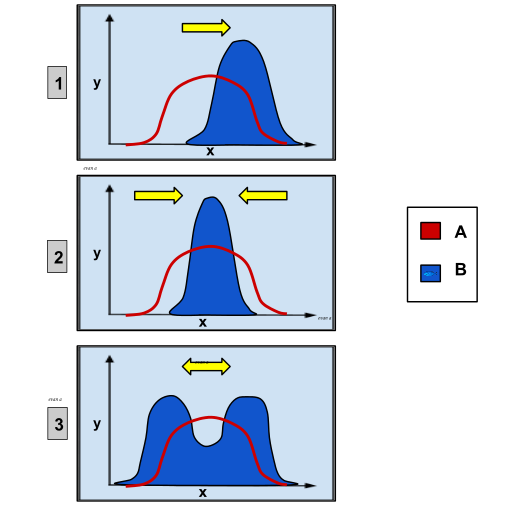Hey I've gotten hold of someone who knows about QM!
AFAIK on the macro scale the arrow of time is to do with thermodynamic entropy. What I am thinking is that if that emerges from microscale behaviours (or atoms, or partices) then they must follow certain rules too. Like, atoms don't act so as to create macroscale anomalies, because their micro behaviour is regular. If in a gas diffusion experiment, the diffusing gas suddenly wrote the letters of the alphabet, then would be anomalous. An anomaly due to ultimately microscale activities.
So the inference I have is if the macroscale is an orderly progress to entropy, then on the microscale there must be a reflection of this. No sudden collective madness. But a plain old march onwards.
This fits into the zombie scenario, because on the macroscale we have an orderly universe. Constants. Laws. Uniformity of nature. This must IMO stem from microscale events, because these laws etc are part of the nature of the flow of time, and therefore related to entropy and thermodynamics.
A p-zombe would be like those letters in a gas diffusion experiment, a thermodynamic anomaly or miracle so weird, its not that likely at all.
So, part of the argument for "I'm not a zombie, but conscious" comes from physics. A p-zombie would be a breach of uniformity.
Now, brainstorming again, could there be a relationship between p-zombies, humans and wave function collapse?
If consciousness or measurement creates a path for a particle, in that 'taking a reading' make a path 100% likely, and others not so, then maybe that's a reason the wave disappears. So our minds are measurement devices, and zombies are anomalous precisely because our conscious reading creates a perspective from which we relate to the universe. We are 'dipped into' the universe where consciousness occurs, and consciousness collapses the wave, and therefore the normality of the physical universe is assembled, its an artefact of observation, just as the particle
when observed behaves more normally.
OTOH a p-zombie would NOT have a "world of lived experience" to relate to, not being conscious.
A p-zombe is a rare case, because we observe from a part of the bell curve (i.e the darker blue area in the bell curve below) from the angle of the possibilities where consciousness occurs, and where consciousness occurs the wave is normalised (leading to the arrow of time, constants etc).
Or, maybe its vice versa. We live in a world where the universe's path is normalised, on average, and emerges form waves upon waves of particles averaging out into a space-time continuum. No need for consciousness to create things, they're normalised anyway.
And this comes hand in hand with physical constants and regularities, and its in that zone only, the "lawful zone", there it becomes possible that evolution, gravity and consciousness etc. occur?
So its like an allusion to the anthropic principle idea. We aren't in a world of p-zombies because appearances depend on ones point of reference, and ours is as conscious entities...and.... as such... were nestled in the zone of uniformity, constants, laws of physics etc. which themselves "urge" us towards everyday conclusions.
Its possible I could fly, but I'm not trying it. Its possible I could be dreaming, but I'm not walking through any walls.
So philosophical anomalies (we're dreaming, I'm a zombie etc.) may be akin to thermodynamic anomalies. And these potential anomalies are the intellectual counterpart of physics mysteries, like quantum waves, the multiverse of possibilities etc. where maybe I could in fact be dreaming after all. Some kind of structural connection between unfalsifiable ideas, and them there physical components of reality.
zombies ...... normalities .............zombies
miracles........lawful zone...........miracles
philosophy.......science...............philosophy
untestable.....observables..........untestable
So also there is a parallel between normality and abnormality, and potential directions in genetic evolution. Shift away from "normal analysis" (science, uniformity of nature, the red line zone) is dependent on environmental pressures, just like new observables can lead to a change(s) in theory too. So a shift in ones epistemic logic towards scepticism, changing interpretation of data, may lead to a shift from science to philosophy.
So, "climate chance" from scientific realism to philosophical scepticism, is a parallel of biological processes...
These are more random thoughts tho, brainstorming.





